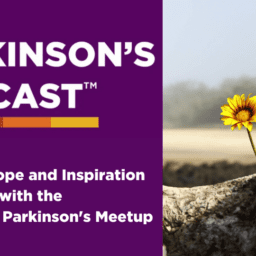Karen Frank, a Davis Phinney Foundation Ambassador, was diagnosed with Parkinson’s at age 47. No stranger to overcoming adversity, Karen proudly maintains longstanding sobriety after overcoming drug and alcohol addiction many years ago. Her own recovery experience set her on a path to become a peer advisor to other medical professionals experiencing similar life challenges.
Karen now spends her time helping physicians and nurses who struggle with substance abuse. She is an active public speaker with the Missouri Physician Health Program and the Missouri State Medical Association, where she speaks to groups of physicians about overcoming trauma and adversity and recovering from substance abuse within the medical profession. Karen started New Directions Coaching, where she mentors physicians and nurses who battle addiction, alcoholism, and other disorders. More recently, she has begun coaching people with Parkinson’s to improve their lives as they navigate living with chronic illness. Karen also formed and leads a YOPD support group for the St. Louis Chapter of the American Parkinson’s Disease Association.
In this video, she shares with us her story about substance abuse, her Parkinson’s diagnosis, overcoming addiction, taking action, and living well with Parkinson’s. You can watch the video below.
Resources and Topics Discussed
- Recovery from trauma, substance abuse, and/or addiction is a multi-step process. For Karen, this included phases of grief, self-reflection, acceptance, and forgiveness
- After a Parkinson’s diagnosis, many people often wonder, Why me? A powerful way to reframe the diagnosis, Karen believes, is to say instead, “Okay, what’s next? We have to use our grief as a launching pad, but then we let it go – it’s in the past. The grief becomes the energy that moves us forward to a compelling future”
- Impulse Control Disorders (ICDs), including pathological gambling, hypersexuality, compulsive shopping, and compulsive eating, are common in people with Parkinson’s who also take dopamine agonists (DAs), drugs used to treat the symptoms of Parkinson’s
- People living with Parkinson’s who have a history of substance abuse and addiction are more susceptible to developing ICDs if they take dopamine agonists for symptom control
- Taking action is Karen’s key to living well with Parkinson’s. “I pulled out of my depression and began the work of rebuilding my life. I had the skills and tools, the depth of character, and the kiss of disaster, and I had always risen above. I had to figure out what I was going to do next, what mattered to me, how I would fill my days and my heart with things that really fed my soul.”
- So, too, is allowing herself to feel and consciously work through all emotions that arise
- When you connect with others in your community, you are often inspired to give back, both good ways to boost your own health and that of those around you
- There are numerous professionals who can help you if you are struggling with substance abuse and/or impulse control, and the first step to getting help is admitting to yourself that you need it
- Cognitive Behavior Therapy helped Karen manage the compulsive behavior, anxiety, and stress that were side effects of some of her Parkinson’s medications
Hear More of Karen’s Advice and Stories in our YOPD Women Series
Karen, along with Gaynor Edwards, Kat Hill, Heather Kennedy, and Soania Mathur, is part of our YOPD Women Council, which meets every month to discuss the many unique ways Parkinson’s impacts YOPD women. To learn more and register for the series, click here.

















